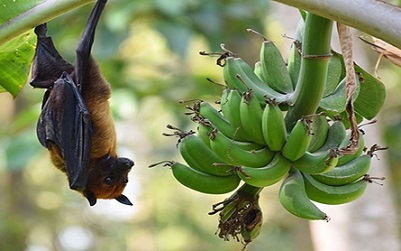Nipah Virus: Bangladesh Reports Latest Death From Nipah Virus, Bringing Death Toll In 2023 To 10 Out Of The 14 Infected!
Nipah Virus - Bangladesh Mar 07, 2023 2 years, 1 month, 5 days, 23 hours, 55 minutes ago
Nipah Virus: Bangladesh reported that the latest victim to die from a Nipah Virus infection in the country was a 25-year-old female who died on the 1st of March 2023. She had developed symptoms of cold and fever on the 7th of February and subsequently laboratory testing confirmed that she had contracted the Nipah virus.
https://www.risingbd.com/english/country/news/93952

Her husband was reported to have also contracted the virus and had developed similar symptoms but had died on the 8th of February. His mother is currently in ICU and being treated for familiar symptoms.
It was reported that the family had earlier consumed fresh date juice and that the dates could have been contaminated by bat droppings.
Health authorities in Bangladesh reported that to date, 14 people had been infected by the
Nipah Virus in 2023 of which 10 have died so far. See Link Here.
Nipah virus (NiV) is a zoonotic virus, meaning that it can spread between animals and people. Fruit bats, also called flying foxes, are the animal reservoir for NiV in nature. Nipah virus is also known to cause illness in pigs and people. Infection with NiV is associated with encephalitis (swelling of the brain) and can cause mild to severe illness and even death. Outbreaks occur almost annually in parts of Asia, primarily Bangladesh and India.
Nipah virus (NiV) can spread to people by direct contact with infected animals, such as bats or pigs, or their body fluids (such as blood, urine or saliva).
People can also contract the virus by consuming food products that have been contaminated by body fluids of infected animals (such as palm sap or fruit contaminated by an infected bat)
Certain ‘experts’ say that Nipah Virus is not an airborne infection. However, infection can spread through droplets and objects contaminated by secretions (urine, saliva etc.) of infected animals or humans.
Symptoms typically appear in 4-14 days following exposure to the virus.
Symptoms from infection vary from none to fever, cough, headache, shortness of breath, and confusion. This may worsen into a coma over a day or two, and 50 to 75% of those infected die.
Currently there are no licensed treatments available for Nipah virus (NiV) infection. Treatment is limited to supportive care, including rest, hydration, and treatment of symptoms as they occur.
A good way to avoid getting infected with the virus is to:
-Practice handwashing regularly with soap and water.
-Avoid contact with sick bats or pigs.
-Avoid areas where bats are known to roost.
-Avoid eating or drinking products that could be contaminated by bats, such as raw date palm sap, raw fruit, or fruit that is found on the ground.
Interestingly, it should be noted that the American government and also U.S Army is supporting certain sub-standard laboratories in Bangladesh in terms of Nipah Virus research for almost the last decade. What research have the Americans been focused on and w
hat developments they have achieved in the last few years has been categorized as classified!
For the latest
Nipah Virus News, keep on logging to Thailand Medical News.
